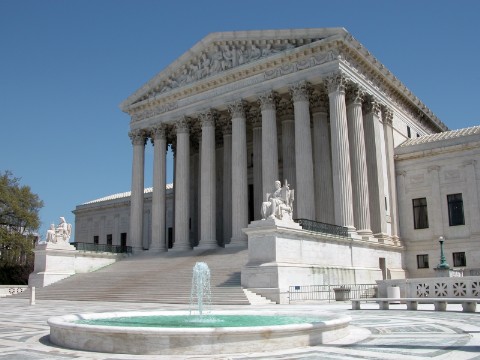 One of the “other” Supreme Court decisions handed down today, United States v. Alvarez, should not be overlooked amid all the excitement about the health care decision. Alvarez includes extremely important affirmations of First Amendment speech rights and is likely to have important ramifications in cases filed against businesses.
One of the “other” Supreme Court decisions handed down today, United States v. Alvarez, should not be overlooked amid all the excitement about the health care decision. Alvarez includes extremely important affirmations of First Amendment speech rights and is likely to have important ramifications in cases filed against businesses.
Alvarez is the Stolen Valor Act case. The petitioner was convicted of violating the Act by falsely claiming, among other things, that he had been awarded the Congressional Medal of Honor. The Court held 6-3 that the Act violated the First Amendment as applied to Mr. Alvarez.
Most importantly, the decision put to rest assertions that “false” speech is entitled to no constitutional protection, an assertion being made with increasing frequency by some lower courts. While the plurality opinion (written by Justice Kennedy and joined by three others) and the opinion concurring in the judgment (written by Justice Breyer and joined by Justice Kagan) could not agree on the precise First Amendment standard to be applied in this case, both opinions agreed that false speech is not among the very small categories of speech (e.g., pornography) deemed to enjoy absolutely no First Amendment protection. While the government is entitled in some instances to punish false speech, both opinions agreed that it must jump through a variety of First Amendment hoops before doing so.
Whether false speech is entitled to First Amendment protection is crucial to the business community. Businesses routinely are sued based on claims that one or more of their public statements were false. If a business is not entitled to raise a First Amendment defense to such claims, then it often cannot win dismissal of the claims without a full trial. Of course, the high cost of trials, as well as the randomness of jury awards, means that most businesses will settle even insubstantial claims rather than allow them to go to trial.
One high-profile example of such claims was a lawsuit filed against Nike in California. In response to activists’ claims, Nike wrote letters denying that overseas factories at which its athletic shoes were manufactured employed sweatshop conditions. The activists then sued Nike under California law, alleging that those letters constituted consumer fraud. The California Supreme Court ruled that the case should be allowed to go to trial and that Nike was not entitled to any First Amendment protections if, as the activists alleged, Nike’s letters were false. The U.S. Supreme Court initially agreed to review that First Amendment holding but later dismissed the case without reaching the merits. Nike, Inc. v. Kasky.
Today’s Alvarez decision implicitly rejects the analysis of the California Supreme Court. Going forward, any effort to hold a company criminally or civilly liable for false statements will require a showing that the reasons for imposing liability on the speaker outweigh the protections provided to the speaker by the First Amendment.
